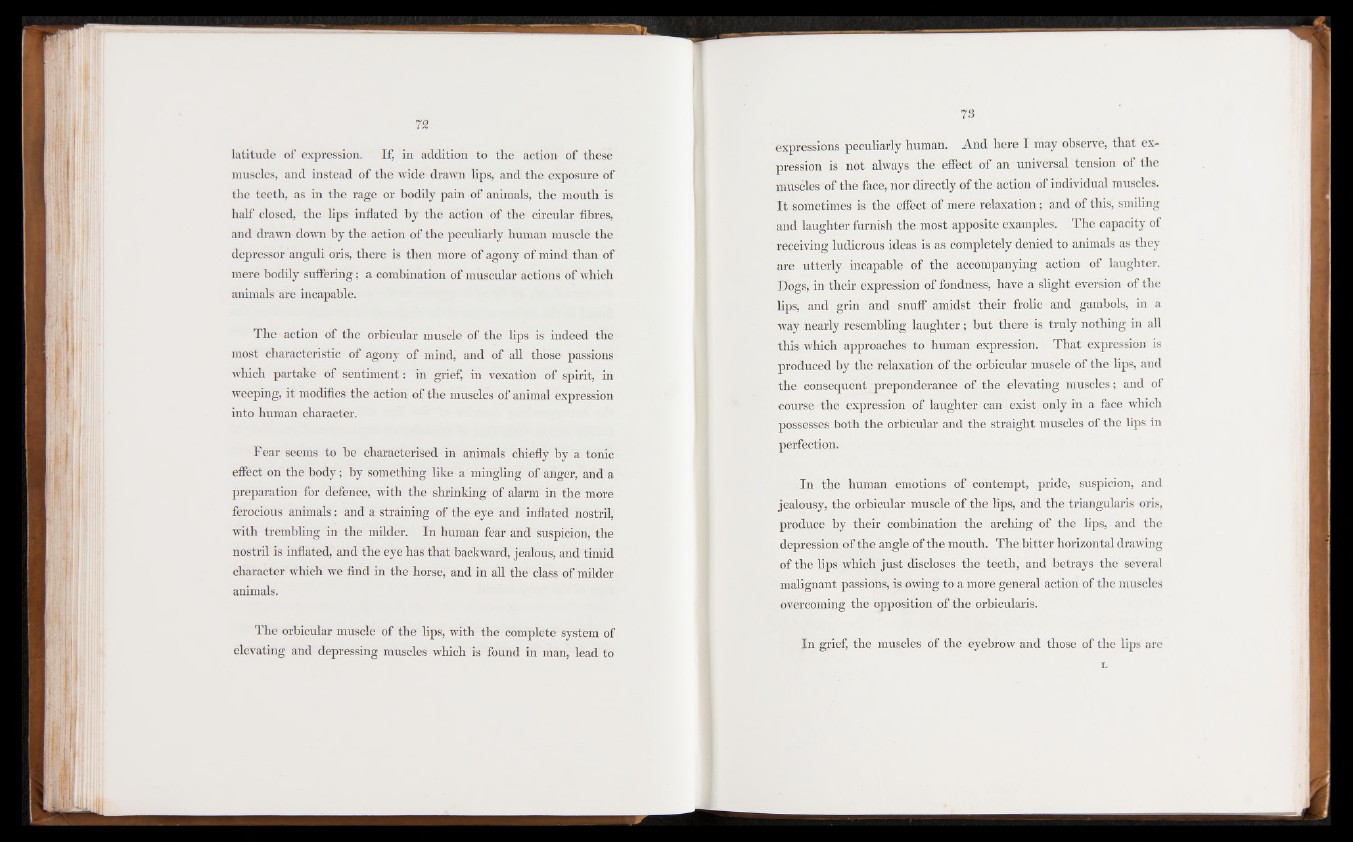
latitude of expression. If, in addition to the action of these
muscles, and instead of the wide drawn lips, and the exposure of
the teeth, as in the rage or bodily pain of animals, the mouth is
half closed, the lips inflated by the action of the circular fibres,
and drawn down by the action of the peculiarly human muscle the
depressor anguli oris, there is then more of agony of mind than of
mere bodily suffering; a combination of muscular actions of which
animals are incapable.
The action of the orbicular muscle of the bps is indeed the
most characteristic of agony of mind, and of all those passions
which partake of sentiment: in grief, in vexation of spirit, in
weeping, it modifies the action of the muscles of animal expression
into human character.
Fear seems to be characterised in animals chiefly by a tonic
effect on the body; by something like a mingling of anger, and a
preparation for defence, with the shrinking of alarm in the more
ferocious animals: and a straining of the eye and inflated nostril,
with trembling in the milder. In human fear and suspicion, the
nostril is inflated, and the eye has that backward, jealous, and timid
character which we find in the horse, and in all the class of milrW
animals.
The orbicular muscle of the lips, with the complete system of
elevating and depressing muscles which is found in man, lead to
expressions peculiarly human. And here I may observe, that expression
is not always the effect of an universal tension of the
muscles of the face, nor directly of the action of individual muscles.
It sometimes is the effect of mere relaxation; and of this, smiling
and laughter furnish the most apposite examples. The capacity of
receiving ludicrous ideas is as completely denied to animals as they
are utterly incapable of the accompanying action of laughter.
Dogs, in their expression of fondness, have a slight eversion of the
lips, and grin and snuff amidst their frolic and gambols, in a
way nearly resembling laughter; but there is truly nothing in all
this which approaches to human expression. That expression is
produced by the relaxation of the orbicular muscle of the lips, and
the consequent preponderance of the elevating muscles; and of
course the expression of laughter can exist only in a face which
possesses both the orbicular and the straight muscles of the lips in
perfection.
In the human emotions of contempt, pride, suspicion, and
jealousy, the orbicular muscle of the lips, and the triangularis oris,
produce by their combination the arching of the lips, and the
depression of the angle of the mouth. The bitter horizontal drawing
of the lips which just discloses the teeth, and betrays the several
malignant passions, is owing to a more general action of the muscles
overcoming the opposition of the orbicularis.
In grief, the muscles of the eyebrow and those of the lips are
L